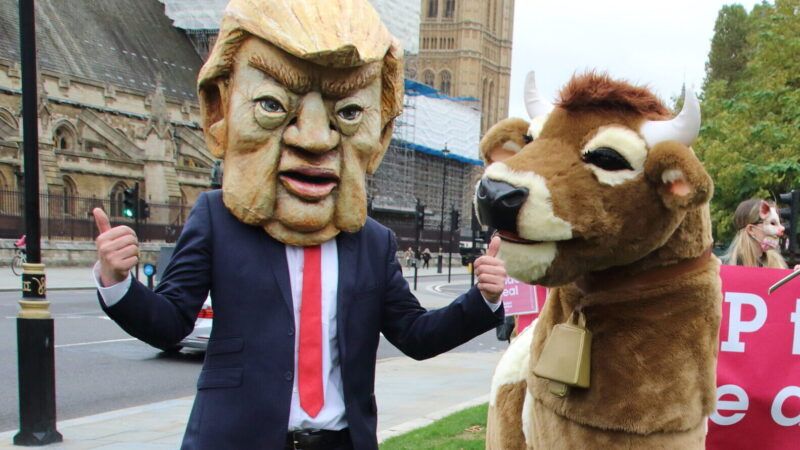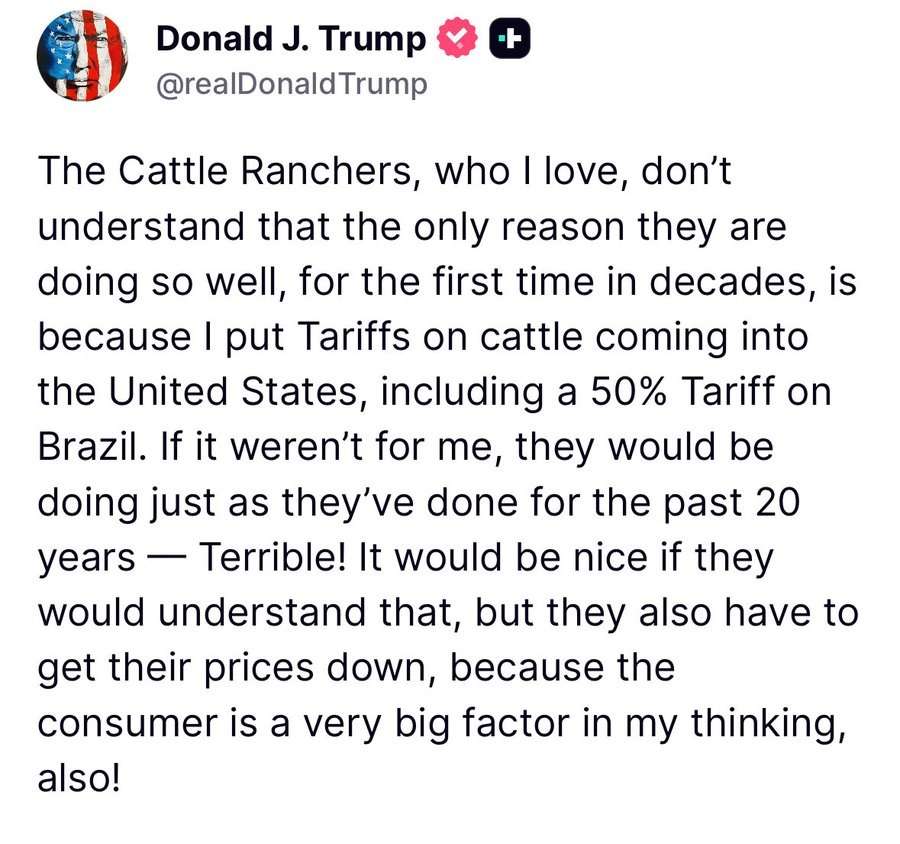Trump Wants Higher Beef Prices and Also Lower Beef Prices
The president somehow believes that tariffs can deliver wins for both producers and consumers. It is maddening and nonsensical.

It remains genuinely astonishing that someone as obsessed with tariffs as President Donald Trump can also be so maddeningly ignorant about how they actually work.
Case in point: On Thursday morning, the president simultaneously took credit for raising beef prices (with tariffs, naturally) while also demanding lower beef prices for consumers. This reflects an ongoing tension within the Trump administration's trade policies, as Trump is currently seeking additional beef imports from Argentina to offset the higher prices caused by his tariffs on beef from other countries.
There is usually little to be gained by parsing Trump's social media posts in a serious way, but this one might be an exception. Here's what Trump wrote Thursday on Truth Social:

So, on one hand, the president believes he's helping American cattle farmers by imposing tariffs on imported beef—particularly beef from Brazil, which is now subject to a 50 percent tariff. (Amusingly, that tariff is officially for "national emergency" reasons, but in reality, it exists simply because Trump got mad at the current government of Brazil for prosecuting his buddy, former Brazilian President Jair Bolsonaro.)
Leave aside the question of whether American cattle farmers are actually happy about this. Let's just think about the mechanics of what Trump is describing. He says the cattle farmers are "doing so well" because of the tariffs. Presumably, that's because they can now raise prices. That's what tariffs do: by making foreign goods more expensive, they benefit domestic producers, largely by allowing them to raise prices in an environment with less competition.
Trump wants cattle farmers to be able to charge higher prices. Well, OK, what he really wants is the cattle farmers to appreciate him for creating the conditions in which they can charge higher prices—but same difference.
But, wait. Trump says he also wants those same cattle farmers to "get their prices down," because consumers are unhappy about beef prices hitting record highs.
My dude. How is this supposed to work?
I understand that Trump sees tariffs as effectively a magic wand that he can wave around to accomplish literally any policy. But even by that standard, this is a wild set of claims to make in consecutive sentences. The cattle ranchers are supposed to applaud Trump for letting them charge higher prices, and then also save him from the direct consequences of his own policies, I guess?
The last line of Trump's post does give me some small bit of hope, however. His tariff policies have never acknowledged any concern for consumers whatsoever—even though it has always been obvious that tariffs would hike prices. Now, data from Harvard Business School, the Federal Reserve, and other sources show that's exactly what's happening.
As I wrote earlier this week, the reality about the consequences of tariffs (higher prices for just about everything) seems to be finally puncturing the White House's bubble of tariff-related delusions. Trump admitting that consumers are "a very big factor in my thinking" may be further evidence for that thesis.
And, of course, the Trump administration's recent effort at circumventing import quotas on Argentine beef suggests that someone at the White House understands economics. If you want to lower prices, a reliable way to do it is to open up more supply via trade.
It turns out that central planning is a lot harder than it looks, even when you believe in magical tariffs. Instead of trying to personally decide what cattle farmers should get to earn and what prices they should charge, maybe the president should let the market work.


Show Comments (39)